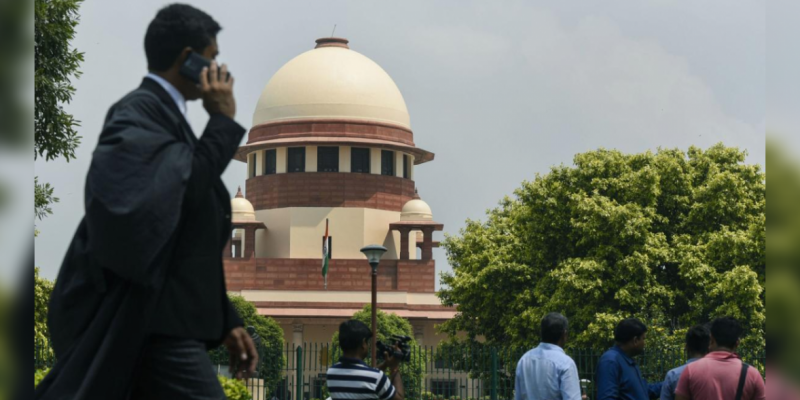New Delhi: The Centre on Wednesday moved a plea seeking a clarification on an earlier Supreme Court order decriminalising adultery, with the intention of retaining adultery as a crime in the armed forces.
The Centre in its plea said that when jawans and officers are posted in inhospitable areas, their families are taken care of at base camp by field unit officers, according to a Times of India report. “Those posted in forward areas should not harbour any misgiving about adulterous or promiscuous activity by caring officers,” the report added, citing the plea.
According to LiveLaw, Attorney General K.K. Venugopal told the bench that the 2018 judgement decriminalising adultery among men does not take into account the Armed Forces Act. In the Army Act, there’s a provision where an officer can be court martialed for “unbecoming conduct”.
In response to this, the bench headed by Justice R.F. Nariman requested the Chief Justice of India S.A. Bobde to list the matter before a five-judge bench.
In September 2018, the apex court had declared Section 497 of the Indian Penal Code (IPC) – that makes adultery a punishable offence for men – unconstitutional and struck it down. According to Section 497 of the IPC, a man who has sex with a woman “whom he knows or has reason to believe to be the wife of another man, without the consent or connivance of that man, such sexual intercourse not amounting to the offence of rape, is guilty of the offence of adultery”.
Also read: Patriarchy, Acing the Test of Time
“Adultery can be ground for civil issues including dissolution of marriage but it cannot be a criminal offence,” the apex court had said.
The apex court had also declared Section 198(1) and 198(2) of the CrPC, which allows a husband to bring charges against the man with whom his wife committed adultery, unconstitutional.
The petition to overturn the sexist law on adultery was filed by a Malayalee in Italy, named Joseph Stine, who said “he just wanted to rescue Indian men from being penalised for extra-marital affairs by vindictive women or their husbands”.
Though the law criminalised only men, it’s equally anti-women because it further violated a woman’s dignity by preventing her from exercising her freedom and making choices for herself. Therefore, it violated the fundamental rights to equality, non-discrimination, privacy, dignity and autonomy guaranteed under Articles 14, 15 and 21 of the constitution.
Also read: Masculinity in Pop Culture: The Rise of Feminist Fathers and Conversations We Need
Section 497, which treated a woman as a property of her husband, criminalised adultery through patriarchal control over their bodies. It denies women the right to her body in the form of agency, autonomy and independence; and the object of desire and sexual autonomy.
The Centre in its affidavit had said that diluting adultery law will impact the sanctity of marriages and will be detrimental to the matrimonial bond.
Terming the legislation as misogynistic, experts have said that it implicitly presumed the inability of self-governance and independence of female persons, upon their own lives. The experts further said that this decriminalisation not only uplifted the legal treatment of women, but also afforded a far more equal treatment to men.




